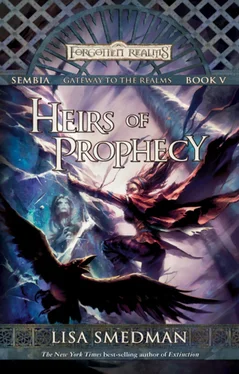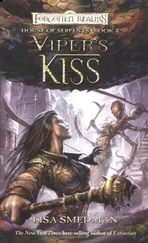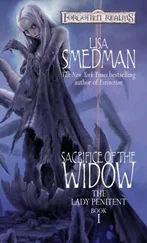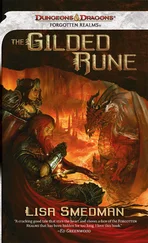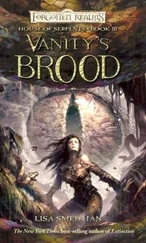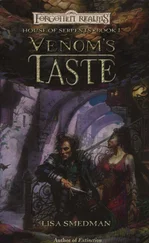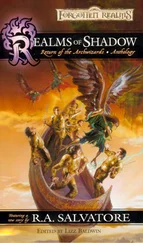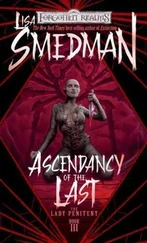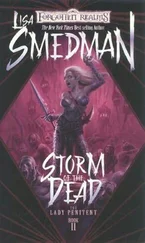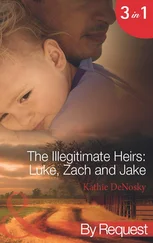Lisa Smedman - Heirs of Prophecy
Здесь есть возможность читать онлайн «Lisa Smedman - Heirs of Prophecy» весь текст электронной книги совершенно бесплатно (целиком полную версию без сокращений). В некоторых случаях можно слушать аудио, скачать через торрент в формате fb2 и присутствует краткое содержание. Жанр: Фэнтези, на английском языке. Описание произведения, (предисловие) а так же отзывы посетителей доступны на портале библиотеки ЛибКат.
- Название:Heirs of Prophecy
- Автор:
- Жанр:
- Год:неизвестен
- ISBN:нет данных
- Рейтинг книги:5 / 5. Голосов: 1
-
Избранное:Добавить в избранное
- Отзывы:
-
Ваша оценка:
- 100
- 1
- 2
- 3
- 4
- 5
Heirs of Prophecy: краткое содержание, описание и аннотация
Предлагаем к чтению аннотацию, описание, краткое содержание или предисловие (зависит от того, что написал сам автор книги «Heirs of Prophecy»). Если вы не нашли необходимую информацию о книге — напишите в комментариях, мы постараемся отыскать её.
Heirs of Prophecy — читать онлайн бесплатно полную книгу (весь текст) целиком
Ниже представлен текст книги, разбитый по страницам. Система сохранения места последней прочитанной страницы, позволяет с удобством читать онлайн бесплатно книгу «Heirs of Prophecy», без необходимости каждый раз заново искать на чём Вы остановились. Поставьте закладку, и сможете в любой момент перейти на страницу, на которой закончили чтение.
Интервал:
Закладка:
Lisa Smedman
Heirs of Prophecy
PROLOGUE
The Year of Wild Magic (1372 DR)
Crowned by the horns of a rising crescent moon, the stone stood in the forest, dappled with shadow and enfolded deep in the whispers and creaks of trees moving in the wind. Four times the height of a person and wider than extended arms could reach, it had been hewn from a single slab of gray granite, then polished by ancient crafters until it was as smooth and glossy as the surface of a still lake.
A solitary figure kneeled before the stone, his knees and bare feet denting the loamy ground. Dressed in short leather breeches with fringe at the knees and a leather vest tooled in an oak-leaf pattern, he held a bow, the ends of which had been carved in the shape of acorns. The fingers and thumb that gripped that bow were dark, though the hand itself was no ruddier than was usual for his race.
The figure’s dark auburn hair was pulled back in a single braid, revealing sharply pointed ears, the left one pierced near its tip with a length of gilded bone. The elf’s face was long and narrow with almond-shaped eyes, and framed by bangs that hung in a series of tiny fringelike braids. A small black feather was woven into the tip of each braid and fluttered against his forehead in the wind. At his throat was a glint of gold: a ring that hung on a leather thong.
With his free hand he reached out, touching the stone with slender fingers. As they rested upon its surface, moonlight revealed the delicate tracery of ink on skin that made the digits appear darker than the rest of his hand. A single, broad line had been tattooed along the back of each finger, another along the thumb. Smaller lines feathered out from these root lines, giving his digits the appearance of dark quills.
Feather-fingers moved upon the Standing Stone, tracing the words that had been inscribed upon it more than thirteen centuries before. Twining around the base of the stone like a vine around a tree, the inscription-written in Espruar, the flowing script of the elves-commemorated the ancient pact between Cormanthor and the humans of the Dales.
The kneeling figure whispered it aloud, from memory. “For thus have the humans of the East solemnly sworn: No axe shall fell the Forest, nor road cross it, nor settlement or farm reduce it, nor invasion claim it, so long as there are elves in this Wood. In return, the Elven Court grants the humans from the East full title to the lands surrounding Cormanthor, to tend and sow as they will. Let this stone stand as a permanent monument to this our solemn pact. For so long as the friendship and trust between our two races endures, so long this stone shall…”
Where the final word should have been was only a dark, empty space. The flowing script vanished into a split in the stone. More than four fingers wide at the base, the crevice rapidly narrowed, but a thin crack continued up the front of the monument, marring its smooth surface.
Tracing this crack with a fingertip, the elf slowly stood. The line ended at a point even with his heart.
The elf drew a bone-handled knife from the belt at his waist and tested its tempered steel against a smooth section of stone. Metal grated against granite once, twice, thrice, eventually etching a faint line. Lowering his knife, the elf peered at the scratch he’d made, watching as it began to glow with a faint, silver light. As the wound in the stone healed itself, the elf slowly nodded. The magic of the Standing Stone was still intact.
Movement at the base of the monument caught the elf’s eye. Sheathing his dagger, he kneeled swiftly. He reached into the crack in the stone with a slender finger and felt something round and rough that had an opening in its side. After a moment, he recognized it as a carefully woven ball of twigs and leaves: a hidden nest. The crack must have been there for some time, perhaps a month or more.
Gently probing inside the nest, his fingertips brushed against the soft back of a tiny bird with an upturned tail-a wren-who protested the intrusion with a sharp peck of her beak. Ignoring the warning, the elf quested further. Inside the nest were two tiny eggs, tucked under the wren’s downy chest. A third egg, pushed to one side of the nest, was cold.
Dead?
The elf closed his eyes and turned his head, seeking out the direction of the breeze by its feel against his skin and the flutter of the feathers in his bangs. He whispered a prayer, letting the wind take his words. A moment later, the sound of a distant flute blew back on the wind. He inhaled sharply, taking it into his lungs, then concentrated its energy from lung to heart to veins to fingertips. Slowly, the egg grew warm under his touch. When it was the same temperature as the others, he nudged it back under the wren’s warm chest.
The elf withdrew his hand, then stood. He turned away from the stone to peer through the darkened wood. No more than a few dozen paces from where he stood was a gap in the forest-the wide, bare slash that was Rauthauvyr’s Road. It was a wound in the forest that was growing wider, becoming more putrid, with each passing day.
As the clouds overhead thickened, the elf scowled. The Elven Court of years long past was wrong to have capitulated to the humans of the south, to have allowed the trees to be felled and the road to be built, breaking the sacred pact. It was a wonder that the stone had not split then, with the first stroke of the axe.
He spat. If he had been born five centuries earlier …
But he had not.
For four hundred and fifty years, human feet had stamped along that road, tramping through the Vale of Lost Voices and troubling the sacred sleep of those laid to rest between the roots of the mighty oaks.
A blight was spreading along that road, destroying the forest to either side and worming its way deeper into the wood with each passing day. Like fleas on a dog the blight must have been carried by humans.
It had to be stopped.
Trees creaked against one another as the wind picked up, and clouds scudded across the face of the moon, throwing stone and elf into shadow. Closer to the road, one of the blighted trees groaned as it was bent by the wind, then it cracked and came crashing down in a tangle of broken limbs. After a silence that stretched for a heartbeat or two, thunder grumbled in the sky to the east. The clouds overhead thickened, and the first drops of rain began to fall.
The elf turned his face up to the heavens, allowing the tears of the Leaflord to mingle with the tears flowing from his own eyes.
“These humans,” he vowed, in a voice as twisted as a gnarled tree root. “They will pay for what they have done.”
He slung his bow over his shoulder and squatted beside the stone, thrusting hands out to either side. A faint tingle began at his splayed fingers, and a shivery chill rushed up his arms. The transformation began. Tattooed fingers flattened and became feathers, arms elongated, changed articulation, and grew into wings. Vest and breeches turned into a covering of sleek black feathers. As the elf’s head grew rounder and his nose and lips hardened into a beak, his body shrank, continuing the shift until he stood on three-toed feet.
Shaking the rain from his feathers, the elf-become-crow gave a single loud caw. A heartbeat later, the cry was echoed by a bright flash of lightning.
The crow launched itself into the air, circled the Standing Stone once, then winged its way to the southeast through darkening skies.
CHAPTER 1
Larajin stared at the face that looked up at her from the pages of the leather-bound book she held in her lap. The woodcut image, printed more than a century before, showed a wild elf with a long, narrow face and high forehead. Tucked behind his pointed ears were braids tied with bits of bone and feather. Feral, almond-shaped eyes glared above cheeks tattooed with thick, black lines.
Читать дальшеИнтервал:
Закладка:
Похожие книги на «Heirs of Prophecy»
Представляем Вашему вниманию похожие книги на «Heirs of Prophecy» списком для выбора. Мы отобрали схожую по названию и смыслу литературу в надежде предоставить читателям больше вариантов отыскать новые, интересные, ещё непрочитанные произведения.
Обсуждение, отзывы о книге «Heirs of Prophecy» и просто собственные мнения читателей. Оставьте ваши комментарии, напишите, что Вы думаете о произведении, его смысле или главных героях. Укажите что конкретно понравилось, а что нет, и почему Вы так считаете.
